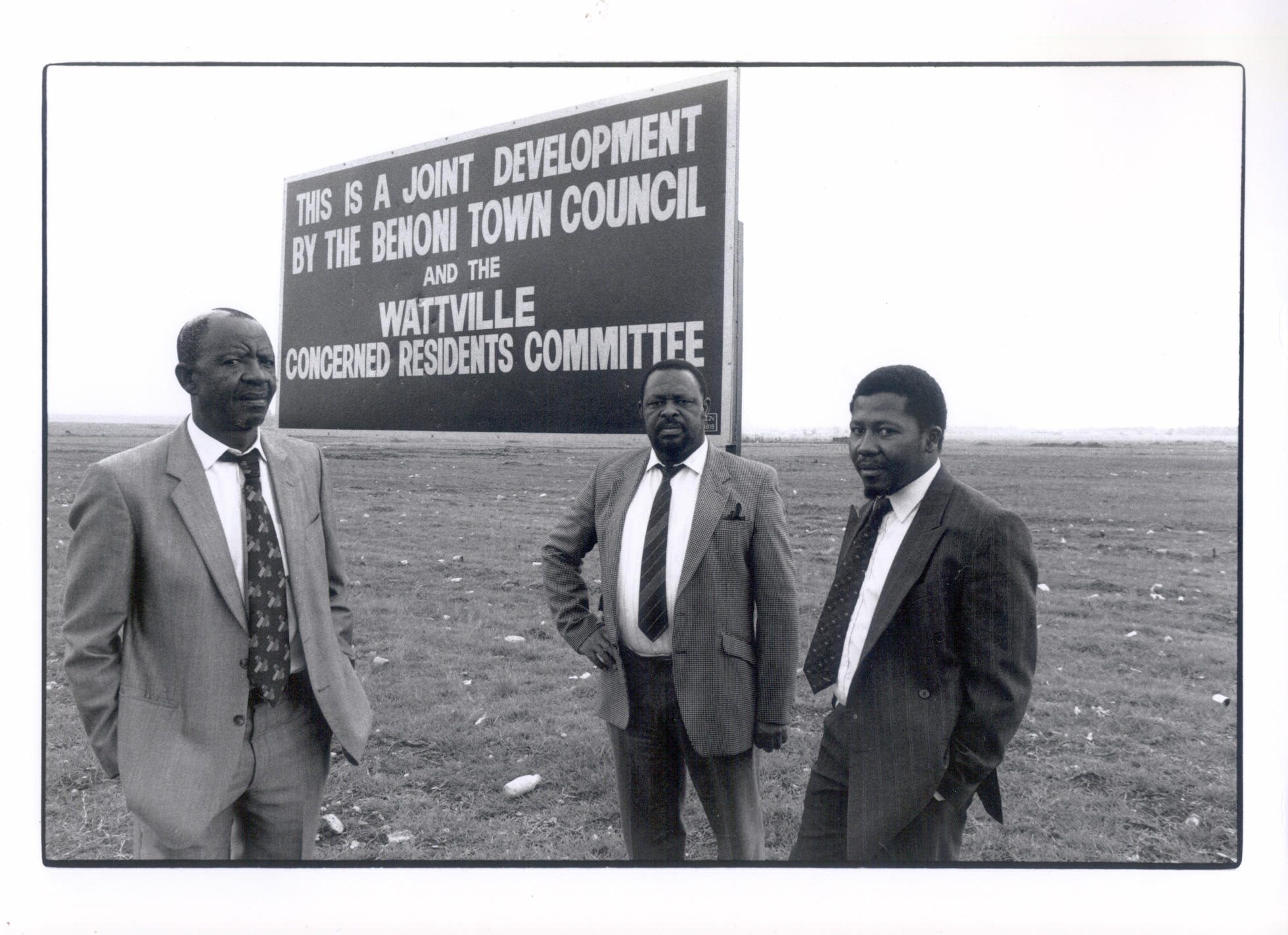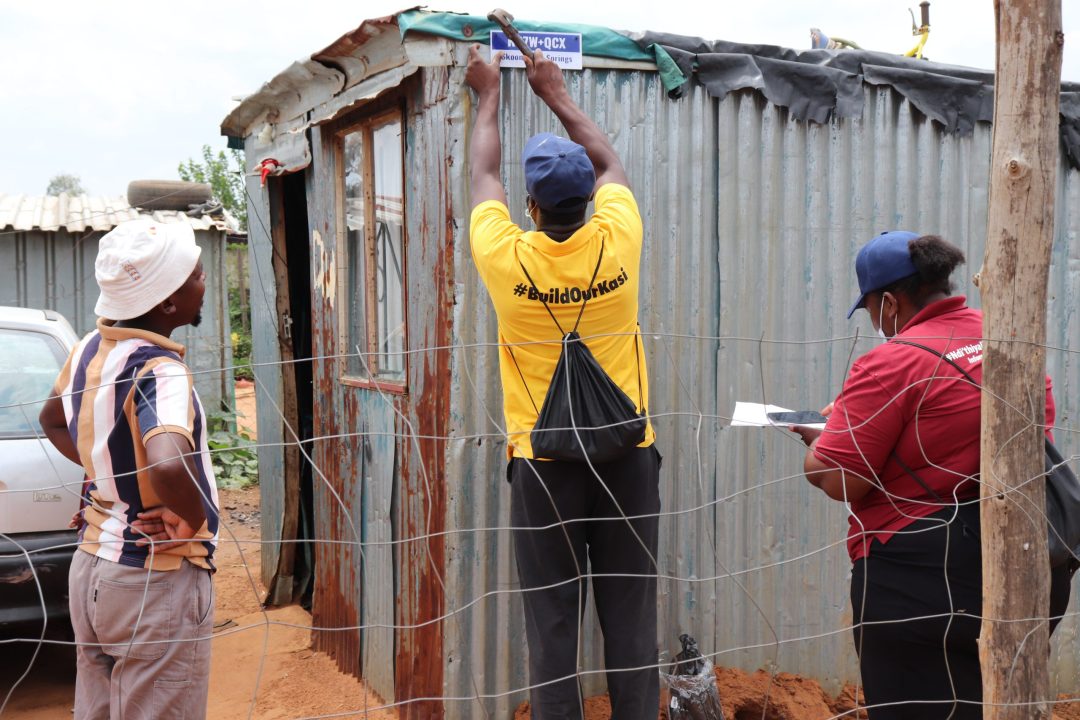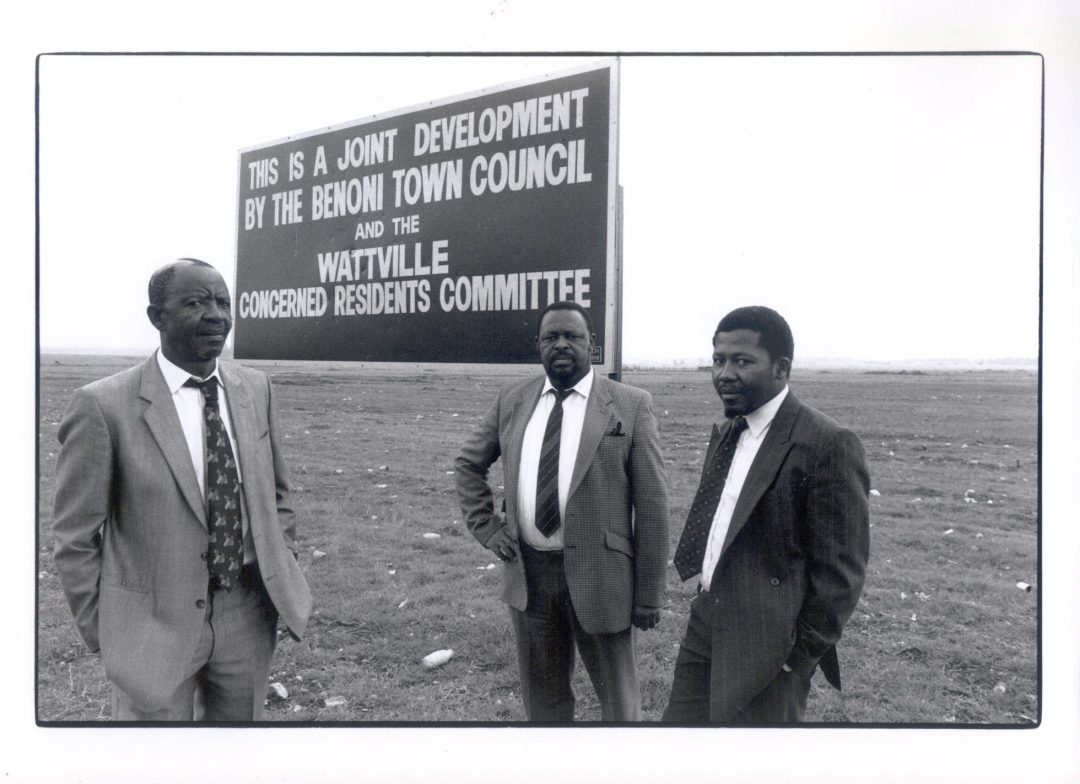Responsive Living Environments
Tamboville land Invasion
Written in 1999
Wattville is a township in the City of Ekurhuleni that today falls within the municipal boundaries of Greater Benoni. Wattville constitutes one of the major cities in the East Rand industrial conurbation.
Although historically linked to the mining industry, Benoni today forms an integral component of Gauteng, and indeed South Africa’s, manufacturing output. This shift from mining to manufacturing has contributed in Wattville to a long legacy of acute overcrowding in a confined geographical space.
The non-enforcement of influx control in Benoni until the 1950’s made Wattville a popular destination for migrants seeking work on the Rand. Population expansion, however, was not accompanied by a corresponding expansion in housing units. Overcrowding was only partly alleviated by the building of Daveyton in 1955. By the early 1960’s, however, all housing construction had ceased. Indeed no new low-income houses were built in Wattville until 1994. As a result natural population growth and later the removal of influx control in 1986 conspired to once again provoke acute overcrowding.
In a social survey conducted by Planact in 1992, it was estimated that an average of 13 people lived in each house. It was not uncommon, however, to find as many as 25 and even 30 people per stand. Massive overcrowding together with nearly 40% unemployment – carried disproportionately by women and the young provoked, inter alia, violence in the family (and against women in particular), crime and various forms of youth delinquency.
The Wattville Concerned Residents Committee (WCRC)
In 1989, a civic organisation, the Wattville Concerned Residents Committee (WCRC), was formed to address community grievances. The committee was able to draw on a strong union as a whole. In the same year it approached Planact to investigate a wide range of issues that included housing, land availability and service charges.
Planact:
Planact is an urban service organisation that makes a multiplicity of technical and strategic skills available to community organisations involved in, amongst other things, local government negotiations and development. Its long history of working closely with communities has made it a frontrunner in sustainable and integrated community-driven development.
Land Invasion
In the course of Planact’s investigations it became apparent that there were various pieces of land in Wattville that were suitable for low-cost housing. Residents feared, however, that the Wattville Town Council, a Black Local Authority constituted in terms of the apartheid reorganisation of local government in 1982, would continue to sell suitable land to private developers for the construction of unaffordable housing. At a mass meeting in July 1990 residents agreed, therefore, to occupy a site owned by the Benoni Town Council (BIC).
Tamboville 1
At the time of the invasion, the WCRC was able to benefit from the climate of political uncertainty amongst Benoni councillors and a strong and liberal town clerk. In an unprecedented decision the BIC not only agreed that the informal settlement could remain, but that it would jointly develop and administer Tamboville with the WCRC. A Joint Technical Committee was established for this purpose. Throughout this period Planact provided legal, technical and strategic advice to the civic organisation and the Wattville community. In this regard Planact and the civic successfully applied for a R5,5 million rand capital subsidy grant from the Independent Development Trust (IDT).
Tamboville 2
Later in 1990, Wattville residents again embarked on a land invasion. The Wattville council intended alienating the area in flagrant disregard for the 3000 long waiting list. After a court ruling residents were ordered to move to another site. This became known as Tamboville 2. After negotiations, the Benoni Town Council agreed to develop this site as well. At the same time a French Non-Governmental Organisation approached Planact and the civic to fund a low-income housing project in the area.
Housing Association
For this purpose Planact and the civic embarked on a experimental social housing initiative. This involved the establishment of a Housing Association to build and manage the construction of 83 houses in Tamboville 2. By withdrawing the land from the speculative market it was hoped the development would retain their affordability in the future. This entire process was delayed, however, by labrynthine legal and political complications which centred on the Wattville council’s objection to the process.
Building only eventually went ahead in early 1994, while the Housing Institution was delayed even further.
Project Re-evaluation
In view of the capacity of apartheid structures to delay and obstruct development, in mid-1992 Planact and the civic began a thorough review of the development process. During numerous strategic workshops the Joint Technical Committee was subject to meticulous scrutiny – Planact and the civic were concerned that the JTC continued to operate within the configuration of apartheid local government. This afforded the white local authority (the BTC) an opportunity to displace it obligations to the residents of Wattville by transferring those duties to the civic itself. In effect the WCRC was becoming another local government body performing localised and technical tasks to the neglect of the wider community. This threatened to undermine the WCRC’s role as representative body of Wattville as a whole.
Restructuring and the Greater Benoni Negotiating Forum
As a result of the evaluation process, the civic restructured itself into specialised task teams to better internally manage the complexity of the Tamboville processes. Furthermore, it was agreed that the latter needed to be linked to the restructuring of apartheid local government as a whole. To this end Planact and the civic participated in the Greater Benoni Negotiating Forum (GBNF) to establish a single administration for the whole area. This, it was hoped, would enable a financially viable council to extend the responsibilities os a local government structure to those areas historically disadvantaged by apartheid.
The Transitional Local Council
Today negotiations in the GBNF have been completed and a Transitional Local Council is in place. This a single, democratic administration responsible for local government functions in the whole of Benoni. The new arrangement also means new challenges for Planact, the WCRC and the community of Wattville. Whereas in the past Wattville had a bi-lateral relationship with the Benoni Council, today the WCRC is merely one voice amongst many seeking limited development resources. The effect this will have on Tamboville remains to be seen.


Our Areas Of Involvement
Strengthened
Grassroots Voice
Responsive
Living Environments
Sustainable
Livelihood Initiatives
Strengthened
Grassroots Voice
Responsive
Living Environments
Sustainable
Livelihood Initiatives


